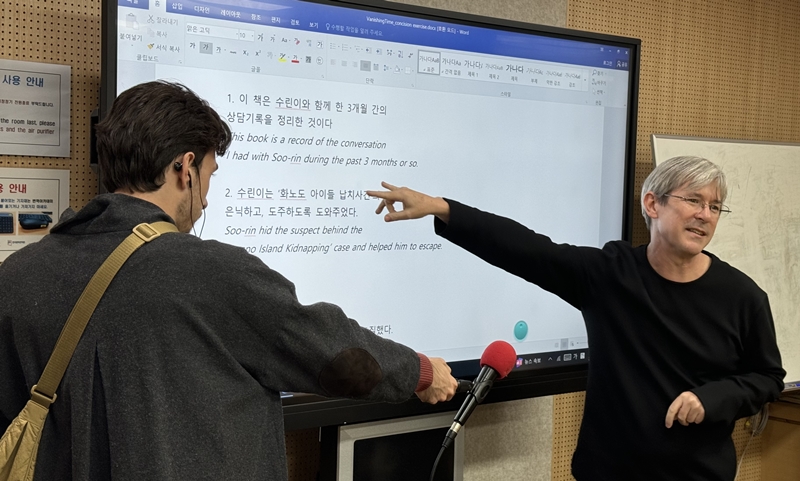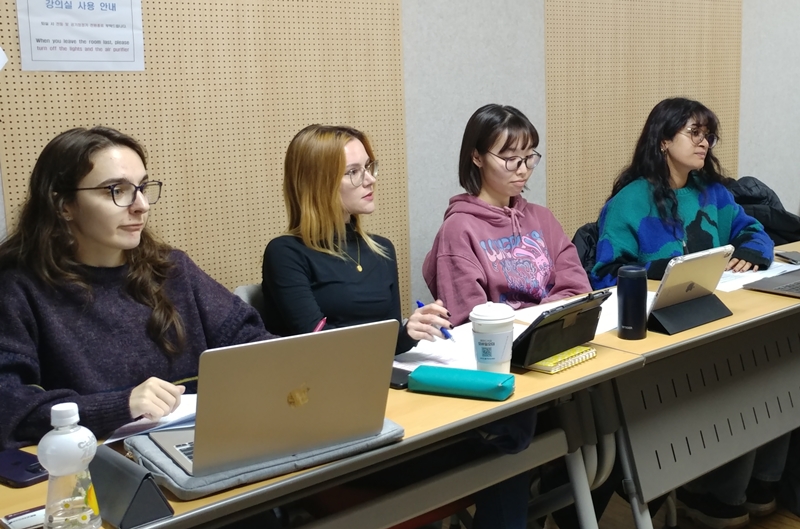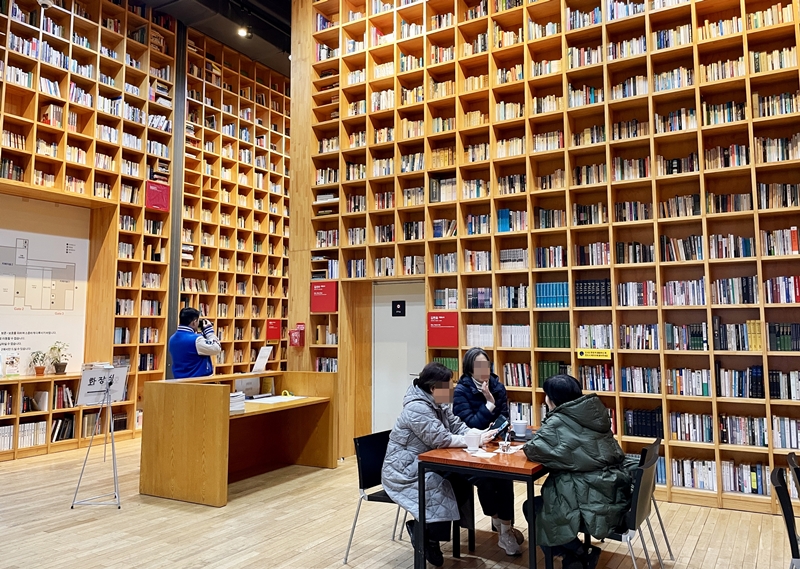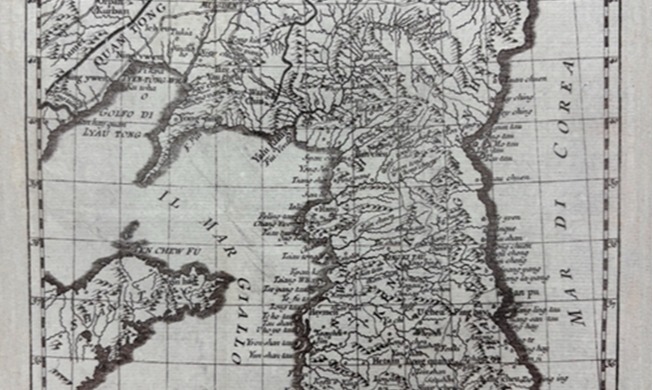
A French news correspondent on Nov. 7 covers translator and instructor Darcy Paquet teaching a class as part of the video course "In-depth Practice of Content Translation" at Literature Translation Institute of Korea in Seoul. (Lee Kyoung Mi)
By Lee Kyoung Mi and Xu Aiying
Han Kang's historic win last month as the nation's first writer to win the Nobel Prize in Literature set off an explosion of global interest in domestic literature. Recently, a news conference for foreign media shed more light on the country's literary and publishing sectors and their direction for the future.
Korea.net reporters and Seoul-based correspondents for 10 foreign media outlets including The Yomiuri Shimbun and Jiji Press of Japan, Golden Bridge of China and La Croix of France on Nov. 7 visited Literature Translation Institute (LTI) of Korea in Seoul and Paju Book City in Paju, Gyeonggi-do Province.
LTI Korea is a government affiliate that supports the translation and publication of domestic literature through projects such as domestic and foreign exchanges, promotion of literary works abroad, training of professional translators of Korean literature, and art and cultural content in Korean.
In Han's case, her works were translated into 28 languages and published in 76 editions worldwide.

Students of the course "Basic Literature Translation Practice 1" on Nov. 7 at the Translation Academy of LTI Korea in Seoul discuss how best to translate the word bunsikjip, or an eatery for popular street food. (Lee Kyoung Mi)
The consensus is that support for translation played a major role in Han's Nobel victory. To live up to this assessment, LTI Korea has stepped up efforts to train quality personnel by running the Translation Academy and holding joint workshops for practice.
The visiting reporters observed the classes "In-Depth Practices in Content Translation (video)" and "Basic Practices in Translation of Literature 1."
Students brainstormed over how to mention an island's name in a short subtitle or accurately convey the meaning of a word exclusive to Korean. The word of the day was bunsikjip, or an eatery for typical street food. One student suggested "snack bar" and another "tteokbokki (spicy rice cake) place."
The extended student discussion over a single term had the reporters nodding as if they understood the difficulty of translation.

A visitor on Nov. 7 looks at an exhibition of the history of Paju Book City in Paju, Gyeonggi-do Province, the nation's lone cultural publishing community set up by publishers with the backing of the Ministry of Culture, Sports and Tourism. (Xu Aiying)
The reporters later headed to Paju Book City in the northern Seoul suburb to see publishing-related businesses such as design, printing and distribution in one venue. They visited Changbi Publishers, the company that put out Han's novels "Human Acts" and "The Vegetarian" and discussed the domestic publication industry.
In the wake of Han's historic award, Changbi representatives said their company underwent major changes after receiving inquiries from numerous places both at home and abroad. To meet the surge in book orders, the publisher kept printing operations running at full capacity on weekends and public holidays to accelerate output.
The changes were highly visible in book sales. Changbi said that before Han's win, her novels "The Vegetarian" (2007) sold a million copies domestically and "Human Acts" (2014) 500,000.
Within a month after her award announced on Oct. 10, however, both works sold over 1.5 million copies combined. The domestic publication industry's criterion for "mega-best seller" is a million copies.

This is Wisdom Forest Library at Paju Book City in Paju, Gyeonggi-do Province. (Xu Aiying)
Not only Han's works but also those of other domestic writers have seen major sales increases. Yet the reporters asked if this trend could continue.
"Given changing reader perspectives on Korean literature, readers abroad are expected to grow more interested in other Korean writers and their works," said Kang Young-gyu, content editor at Changbi. "Korean pop culture has received high interest in all aspects and peaked with the Nobel Prize in Literature, so I consider this a structural change that will last a bit longer rather than a temporary phenomenon."
"For the publishing industry to overcome difficulty, we need quick planning and understanding of what books readers want," Changbi's publication director Jeon Seong-yi added. "We will fully perform our duty as a publisher that promotes good writers and continues putting out good works."
